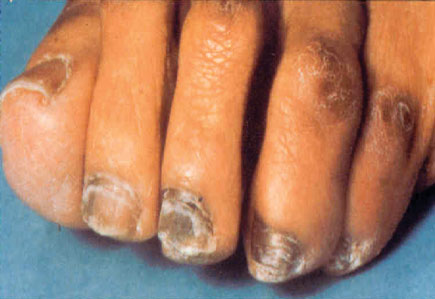MKSAP Quiz: Recent onset of fatigue and muscle weakness
A 52-year-old man is evaluated for recent onset of fatigue and muscle weakness. The patient further reports nocturia and polyuria over the past 4 weeks and a 6-kg (13.2-lb) weight loss over the past 2 months. He has COPD and a 55-pack-year smoking history. His only medication is an albuterol inhaler.
Laboratory studies are as follows:
| Creatinine: | 0.8 mg/dL (70.7 µmol/L) |
| Urine cortisol, free: | 460 µg/24 h (1,268 nmol/24 h) |
| Urine potassium, spot test: | 45 mEq/L (45 mmol/L) (normal, 17-164 mEq/L [17-164 mmol/L]) |
| Glucose, random: | 312 mg/dL (17.3 mmol/L) |
| Adrenocorticotropic hormone (ACTH): | 243 pg/mL (53 pmol/L) |
| Electrolytes: | |
| Sodium: | 145 mEq/L (145 mmol/L) |
| Potassium: | 2.4 mEq/L (2.4 mmol/L) |
| Chloride: | 101 mEq/L (101 mmol/L) |
| Bicarbonate: | 33 mEq/L (33 mmol/L) |
On physical examination, temperature is 36.7°C (98.1°F), blood pressure is 188/102 mm Hg, pulse rate is 96/min, and respiration rate is 22/min; BMI is 23. Temporal muscle wasting and proximal muscle wasting and weakness are noted in the upper and lower extremities. Hyperpigmented mucous membranes are noted. A view of the patient's toenail beds is shown.

Which of the following is the most likely cause of this patient's findings?
A. Adrenal adenoma
B. Adrenal carcinoma
C. Ectopic ACTH secretion
D. Pituitary adenoma
Answer and critique
The correct answer is C: Ectopic ACTH secretion. This question can be found in MKSAP 16 in the Endocrinology and Metabolism section, item 84.
The clinical and biochemical features of this patient with Cushing syndrome (hypercortisolism, melanonychia striata on the toenails) are most likely caused by ectopic adrenocorticotropic hormone (ACTH) secretion by a malignant tumor. Patients with these tumors typically have signs and symptoms of malignancy (weight loss, cachexia, and temporal muscle wasting) and biochemical features of mineralocorticoid activity. This patient most likely has new-onset type 2 diabetes mellitus (recent-onset polyuria and nocturia, high random glucose levels) and classic features of excess mineralocorticoid activity, including hypertension, metabolic alkalosis, and excessive urine potassium loss. He has no history of gastrointestinal fluid losses. Clinical examination shows features consistent with excessive ACTH secretion (hyperpigmented mucous membranes) and excess amounts of glucocorticoids (proximal muscle wasting and weakness). The patient's history of smoking suggests the possibility of an ACTH-producing lung cancer; approximately half of all cases of ectopic ACTH secretion are due to small-cell lung cancer.
Adrenal adenomas can be associated with hypercortisolism but the features tend to be mild, with hypertension and diabetes the most prominent. Adrenal adenomas are associated with suppressed ACTH levels.
Although adrenal carcinomas may be associated with weight loss, rapid onset of cushingoid features, and findings of hypercortisolism, they also are associated with suppressed, not elevated, levels of ACTH.
The clinical and biochemical features of hypercortisolism observed in this patient are not consistent with those seen in patients with ACTH-secreting pituitary adenomas, which generally are associated with lower ACTH levels and slow onset of cushingoid features.
Key Point
- Patients with ectopic adrenocorticotropic hormone (ACTH) production typically have weight loss, rapid onset of Cushing syndrome, temporal muscle wasting and elevated plasma ACTH levels.




